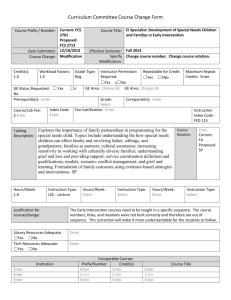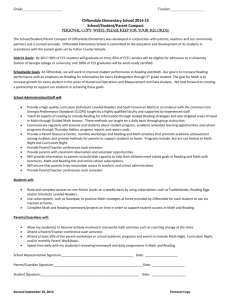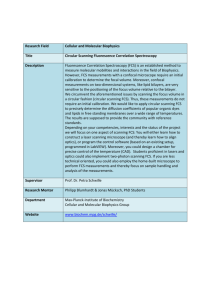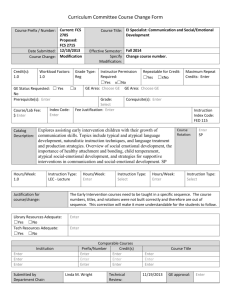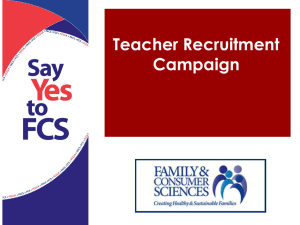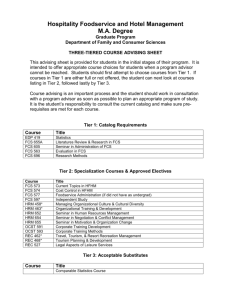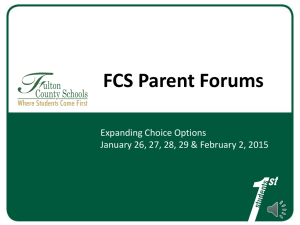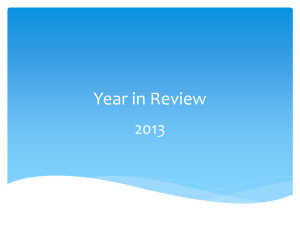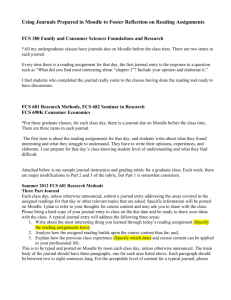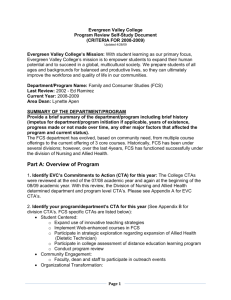Probing Questions for FCS Education Philosophy Paper
advertisement
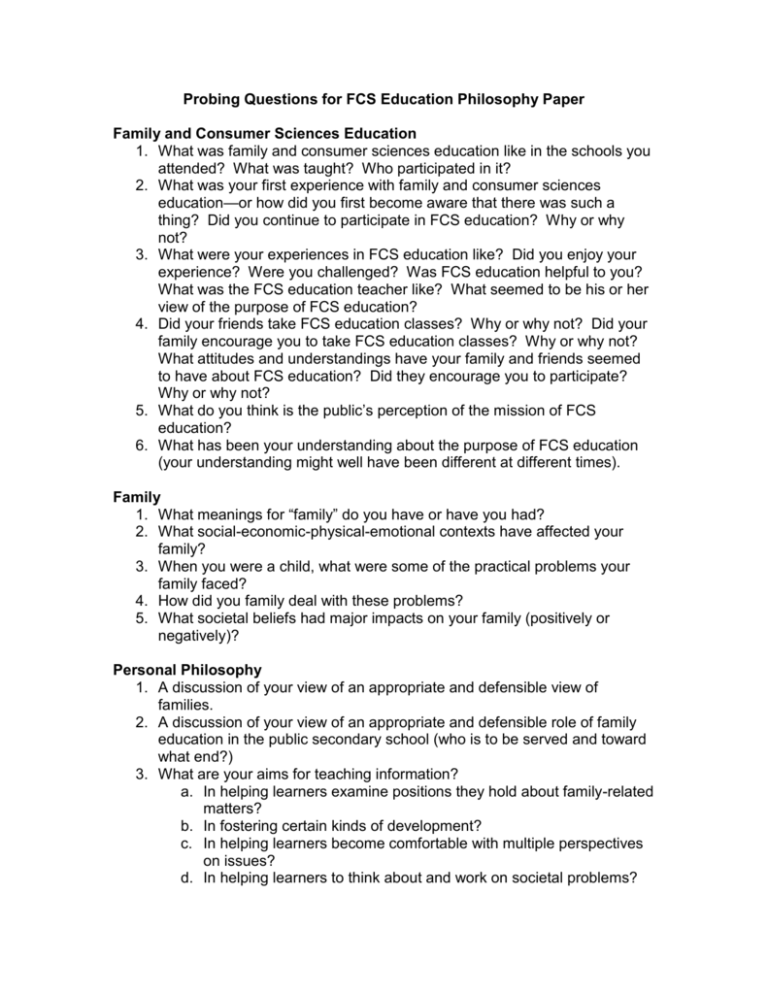
Probing Questions for FCS Education Philosophy Paper Family and Consumer Sciences Education 1. What was family and consumer sciences education like in the schools you attended? What was taught? Who participated in it? 2. What was your first experience with family and consumer sciences education—or how did you first become aware that there was such a thing? Did you continue to participate in FCS education? Why or why not? 3. What were your experiences in FCS education like? Did you enjoy your experience? Were you challenged? Was FCS education helpful to you? What was the FCS education teacher like? What seemed to be his or her view of the purpose of FCS education? 4. Did your friends take FCS education classes? Why or why not? Did your family encourage you to take FCS education classes? Why or why not? What attitudes and understandings have your family and friends seemed to have about FCS education? Did they encourage you to participate? Why or why not? 5. What do you think is the public’s perception of the mission of FCS education? 6. What has been your understanding about the purpose of FCS education (your understanding might well have been different at different times). Family 1. What meanings for “family” do you have or have you had? 2. What social-economic-physical-emotional contexts have affected your family? 3. When you were a child, what were some of the practical problems your family faced? 4. How did you family deal with these problems? 5. What societal beliefs had major impacts on your family (positively or negatively)? Personal Philosophy 1. A discussion of your view of an appropriate and defensible view of families. 2. A discussion of your view of an appropriate and defensible role of family education in the public secondary school (who is to be served and toward what end?) 3. What are your aims for teaching information? a. In helping learners examine positions they hold about family-related matters? b. In fostering certain kinds of development? c. In helping learners become comfortable with multiple perspectives on issues? d. In helping learners to think about and work on societal problems? 4. 5. 6. 7. 8. e. In helping learners to think about and work on personal problems and meet individual needs and wants? A discussion of what you know now and believe about learners a. What do you believe students in middle and secondary level school want to learn? b. Reflect on the relationships of middle and secondary level school students to their contexts—school, family, and community. A discussion of what you know now and believe about what should be taught in FCS education. a. Whose interests should be reflected in selecting what to teach? Where should your own interests fit in the picture? Learners’ interests? Parents’ interests? Society’s interests? b. Do you believe that what is taught should be learned in a way that makes it possible for learners to reproduce it as much and as accurately as possible (on tests, for example, in reports, etc.). c. Do you believe that subject matter is open to questioning by learners? d. Who do you believe are legitimate producers of what is taught? Researchers and scholars in the field? Learners themselves? Teachers’ personal experiences? A discussion of your beliefs about teaching and learning a. How would you describe learning? b. How do changes in knowledge, attitudes and skills relate to learning? c. Is learning an accumulation of information? d. Is a change in behavior needed order to say that learning has occurred? e. Does an observable improvement in performance or efficiency constitute learning? f. Can a new sense of meaning or a personal transformation constitute learning? Where and when does learning occur? a. What conditions need to be present in order for learning to occur? b. Who or what can provide those conditions? c. Is learning better when the whole picture is seen first and then the pieces are filled in? d. Is it better when one has to deal only with a small piece at a time and form the whole over time? e. Is learning in a group or learning alone a preference? f. Does one learn by being told? By watching or observing? By practicing, trying things out? By pondering? An assessment of knowledge, thinking skills, dispositions, and pedagogical skills and understandings that you already possess and that will contribute to your professional practice 9. An identification of knowledge, thinking skills, dispositions, and pedagogical skills and understandings that you still want to acquire to enhance your professional ability.
